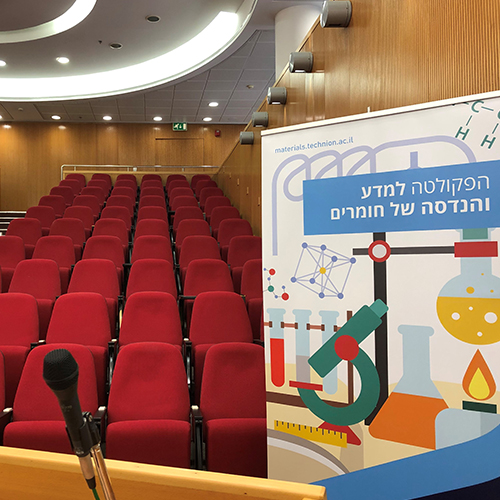
Mr. Yuchen Liu - Ph.D. Candidate
11/12/2025
David Wang Auditorium, 3rd Floor, Dalia Maydan Bldg.
13:30
Designing soft materials that autonomously sense and adapt to complex physiological environments is still a central challenge in biomedical applications. Soft hydrogel actuators hold immense potential for targeted drug delivery, tissue interfacing, and minimally invasive manipulation. However, most rely on non-physiological triggers such as light, heat, solvent exchange, or metal-ion switching, which suffer from poor in vivo compatibility. These issues intensify in the gastrointestinal (GI) tract, with its strong acidity, enzymatic activity, and poor accessibility to external stimuli. Overcoming these demands materials that use endogenous GI cues for autonomous, programmable actuation in vivo.
We address this through a hybrid protein–polymer hydrogel that merges the biochemical versatility of bovine serum albumin (BSA) with the structural robustness of polyethylene glycol diacrylate (PEGDA). Lysine residues on BSA react with PEGDA via aza–Michael addition, while free-radical polymerization reinforces the network. BSA introduces intrinsic pH- and enzyme-responsive motifs: in neutral intestinal fluid, trypsin-mediated degradation softens the network and enhances swelling; in acidic gastric fluid, rapid unfolding triggers expansion, followed by pepsin-driven relaxation.
This dual biochemical responsiveness enables precise deformation and drug release. BSA’s binding versatility supports covalent or noncovalent drug loading with enzyme-regulated, physiologically synchronized release. PEGDA photocurability allows 3D printing and programmable shape morphing, yielding bilayer actuators that autonomously extend in the simulated intestinal fluid and reversibly deform in the gastric fluid. By fusing protein bioactivity with polymer engineerability, this platform creates materials that think with the body, enabling the next generation of autonomous drug delivery systems and soft biomedical robots.


